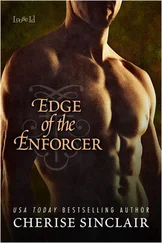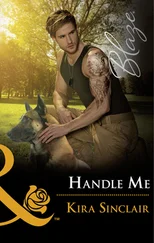Growing old may seem a distant event, but every one of us will experience the end of life. After we draw our last breath, our cells will scream for oxygen, toxins will accumulate, chemical energy will be exhausted, and cellular structures will disintegrate. A few minutes later, all of the education, wisdom, and memories that we cherished, and all of our future potential, will be irreversibly erased.
I learned this firsthand when my mother, Diana, passed away. My father, my brother, and I were there. It was a quick death, thankfully, caused by a buildup of liquid in her remaining lung. We had just been laughing together about the eulogy I’d written on the trip from the United States to Australia, and then suddenly she was writhing on the bed, sucking for air that couldn’t satisfy her body’s demand for oxygen, staring at us with desperation in her eyes.
I leaned in and whispered into her ear that she was the best mom I could have wished for. Within a few minutes, her neurons were dying, erasing not just the memory of my final words to her but all of her memories. I know some people die peacefully. But that’s not what happened to my mother. In those moments she was transformed from the person who had raised me into a twitching, choking mass of cells, all fighting over the last residues of energy being created at the atomic level of her being.
All I could think was “No one tells you what it is like to die. Why doesn’t anyone tell you?”
There are few people who have studied death as intimately as the Holocaust documentary filmmaker Claude Lanzmann. And his assessment—indeed, his warning—is chilling. “Every death is violent,” he said in 2010. “There is no natural death, unlike the picture we like to paint of the father who dies quietly in his sleep, surrounded by his loved ones. I don’t believe in that.” 1 1 In a wide-ranging interview to promote his memoirs, Lanzmann said of his masterpiece film about the Holocaust, “I wanted to get as close as possible to death. No personal accounts are told in Shoah , no anecdotes. It’s only about death. The film is not about the survivors.” “‘Shoah’ Director Claude Lanzmann: ‘Death Has Always Been a Scandal,’” Spiegel , September 10, 2010, http://www.spiegel.de/international/zeitgeist/shoah-director-claude-lanzmann-death-has-always-been-a-scandal-a-716722.html.
Even if they don’t recognize its violence, children come to understand the tragedy of death surprisingly early in their lives. By the age of four or five, they know that death occurs and is irreversible. 2 2 The study looked at three concepts about death that children come to understand before they are seven years old: irreversibility, nonfunctionality, and universality. M. W. Speece and S. B. Brent, “Children’s Understanding of Death: A Review of Three Components of a Death Concept,” Child Development 55, no. 5 (October 1984): 1671–86, https://www.ncbi.nlm.nih.gov/pubmed/6510050.
It is a shocking thought for them, a nightmare that is real.
A “GOOD, LONG LIFE.”My grandmother “Vera” sheltered Jews in World War II, lived in primitive New Guinea, and was removed from Bondi Beach for wearing a bikini. The end of her life was hard to watch. “This is just the way it goes,” she said. But the person she truly was had been dead many years at that point.
At first, because it’s calming, most children prefer to think that there are certain groups of people who are protected from death: parents, teachers, and themselves. Between 5 and 7, however, all children come to understand the universality of death. Every family member will die. Every pet. Every plant. Everything they love. Themselves, too. I can remember first learning this. I can also very well remember our oldest child, Alex, learning it.
“Dad, you won’t always be around?”
“Sadly, no,” I said.
Alex cried on and off for a few days, then stopped, and never asked me about it again. And I’ve never again mentioned it, either.
It doesn’t take long for the tragic thought to be buried deep in the recesses of our subconscious. When asked if they worry about death, children tend to say that they don’t think about it. If asked what they do think about it, they say it is not a concern because it will occur only in the remote future, when they get old.
That’s a view most of us maintain until well into our fifties. Death is simply too sad and paralyzing to dwell on each day. Often, we realize it too late. When it comes knocking, and we are not prepared, it can be devastating.
For Robin Marantz Henig, a columnist at the New York Times , the “bitter truth” about mortality came late in life, after she became a grandparent. “Beneath all the wonderful moments you may be lucky enough to share in and enjoy,” she wrote, “your grandchild’s life will be a long string of birthdays you will not live to see.” 3 3 The author attended the birth of her daughter’s first child along with her son-inlaw. R. M. Henig, “The Ecstasy and the Agony of Being a Grandmother,” New York Times , December 27, 2018, https://www.nytimes.com/2018/12/27/style/self-care/becoming-a-grandmother.html.
It takes courage to consciously think about your loved ones’ mortality before it actually happens. It takes even more courage to deeply ponder your own.
It was the comedian and actor Robin Williams who first demanded this courage from me through his portrayal of John Keating, the teacher and hero in the film Dead Poets Society , who challenges his teenage students to stare into the faces of the long-dead boys in a fading photo. 4 4 The film’s exhortations to make the most of every day took on a darker hue after the suicide of its star, Robin Williams. P. Weir, director, Dead Poets Society , United States: Touchstone Pictures, 1999.
“They are not that different from you, are they?” Keating says. “Invincible, just like you feel. … Their eyes are full of hope … But you see, gentlemen, these boys are now fertilizing daffodils.”
Keating encourages the boys to lean in closer to listen for a message from the grave. Standing behind them, in a quiet, ghostly voice, he whispers, “ Carpe. Carpe diem. Seize the day, boys. Make your lives extraordinary.”
That scene had an enormous impact on me. It is likely that I would not have had the motivation to become a Harvard professor if it hadn’t been for that movie. At the age of 20, I had finally heard someone else say what my grandmother had taught me at an early age: Do your part to make humanity be the best it can be. Don’t waste a moment. Embrace your youth; hold on to it for as long as you can. Fight for it. Fight for it. Never stop fighting for it.
But instead of fighting for youth, we fight for life. Or, more specifically, we fight against death.
As a species, we are living much longer than ever. But not much better. Not at all. Over the past century we have gained additional years, but not additional life—not life worth living anyway. 5 5 The author argues that rather than focusing on cancer and cardiovascular issues, medical research should be focusing on “reducing ageing and age-related morbidity, thereby increasing both our health and our wealth.” G. C. Brown, “Living Too Long,” EMBO Reports 16, no. 2 (February 2015): 137–41, https://www.ncbi.nlm.nih.gov/pmc/articles/PMC4328740/.
And so most of us, when we think about living to 100, still think “God forbid,” because we’ve seen what those final decades look like, and for most people, most of the time, they don’t look appealing at all. Ventilators and drug cocktails. Broken hips and diapers. Chemotherapy and radiation. Surgery after surgery after surgery. And hospital bills; my God, the hospital bills.
Читать дальше












